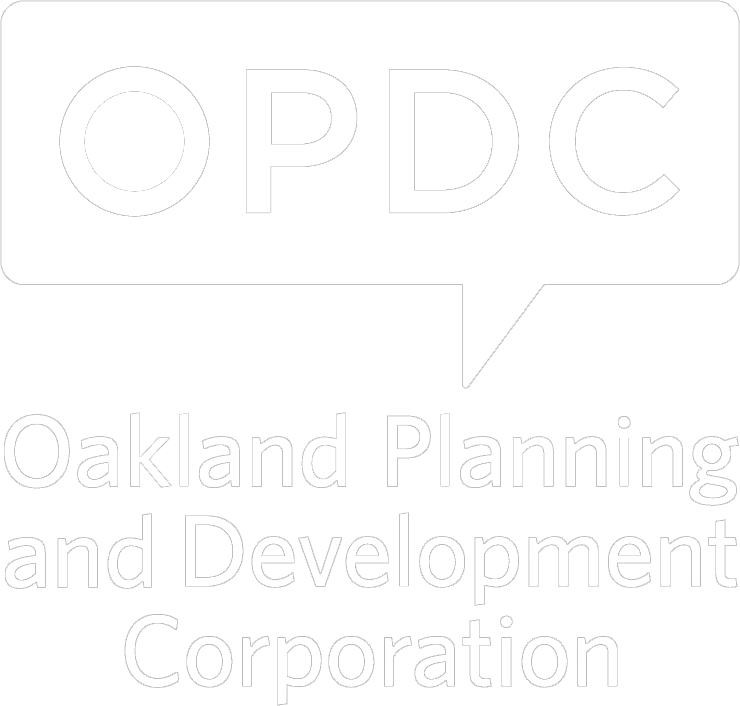By: Maura McCampbell, Marketing & Community Programs Coordinator
COVID-19 vaccine blog
OPDC acknowledges and thanks the organizations working to minimize the pandemic’s disproportionately negative impact on people of color. The Community Vaccine Collaborative and the Black Equity Coalition are doing essential work to assist Pittsburgh’s Black and Latinx communities. Thank you.
April 28 update: The University of Pittsburgh has a limited number of Moderna vaccines avalable for adults 18+ on Wednesday, April 28, from 1:00 p.m. to 4:00 p.m. and Thursday, April 29, from 10:00 a.m. to 2:30 p.m at the former AT&T store on Fifth Avenue across from Starbucks.
Register at https://pi.tt/vras with the access code panthers or call the Pitt COVID-19 hotline for assistance at 412-383-4372.
The Central Baptist Church at 2200 Wylie Avenue in the Hill District offers ongoing walk-in Moderna COVID vaccines to adults. Hours are 1:00 p.m. to 5:00 p.m weekdays and 9:00 a.m. to 1:00 p.m. on Saturdays. For more information, contact the church at 412.566.1437.
March 29 update: Oak Hill Apartments will host a vaccination clinic on Tuesday, March 30 from 9 a.m. to 7 p.m. at 280 Burrow St. The clinic is open to all individuals in Pennsylvania’s 1a category.
To register, complete this form and either email it to oakhillvaccinations@cjmanagment.com or print and drop it in the rent drop slot at 280 Burrows Street. Phone registration is available by calling the Resident Services staff at 412-621-0438.
Registrants must choose their own appointment time between 9 a.m. -7 p.m. and indicate it in their email or on their printed form when registering. The clinic will accept walk-up registration on Tuesday for eligible people with an ID.
With vaccine efforts ramping up around the nation, vaccination is becoming a closer and closer reality for American adults. The US has administered over 100 million doses of COVID-19 vaccines, and Allegheny County has vaccinated more people than any other Pennsylvania county. OPDC is here with the latest rundown with information ever-changing, including upcoming vaccination dates at the Petersen Events Center.
Who can get a vaccine?
Pennsylvania’s Department of Health is in Phase 1a, meaning healthcare personnel, individuals over the age of 65, and individuals with high-risk conditions are eligible for a vaccine. As of March 19, Allegheny County expanded Phase 1a to include individuals ages 50-64 with underlying medical conditions. This expansion applies to the county’s vaccine distribution program and does not necessarily include private vaccine distribution.
You will need to check each provider’s website to confirm their eligibility criteria and whether you must bring documents such as proof of age to your vaccine appointment.
Not yet eligible? That’s likely to change soon. With vaccine supply increasing, President Biden has asked states to make all adults eligible for vaccination by May 1 at the latest.
What’s the difference in the available vaccines?
The Food and Drug Administration has approved three COVID-19 vaccines for Emergency Use Authorization: Pfizer-BioNTech, Moderna, and Johnson & Johnson.
The Pfizer and Moderna vaccines require two separate doses, with the second dose administered at least 21 (Pfizer) or 28 (Moderna) days after the first dose, while the Johnson & Johnson vaccine only requires one dose.
For all three vaccines, full protection sets in two weeks after your final dose. While each vaccine has a different efficacy rate (i.e. reduction in COVID cases amongst vaccinated people), medical professionals advise that people receive the first vaccine available to them, as all three prevent severe illness and hospitalization in the case of contracting COVID.
“If this were one of my closest family members, I would encourage them to take any one of the three available vaccines,” UPMC Dr. Sylvia Owusu-Ansah says. “It’s better to vaccinate than to not. Each has their slight advantages over one another, but overall they prevent people from getting really sick from COVID.”
Where can I get a vaccine?
While distribution sites and appointment availability fluctuate, there are resources to keep you updated on the latest vaccine information.
Register for the County’s Allegheny Alerts and UPMC’s COVID Updates & Information email lists to receive updates on eligibility, appointment availability, and best practices. Individuals struggling to navigate the County’s online registration process can call 2-1-1 for assistance in scheduling an appointment.
Vaccine availability in Oakland:
The University of Pittsburgh is partnering with Allegheny County Health Department to host a vaccine clinic at the Petersen Event Center. This site will provide approximately 1,000 vaccine doses a day. Appointments are available through March 26, and a second clinic will be held at the same location to provide second dose appointments within the necessary 28 to 42-day window.
Register for this clinic, and the Health Department’s other clinics, on their website or by calling 2-1-1. All clinics are appointment only and do not accept walk-up registration. Are you a Pitt community member interested in volunteering at this clinic? Sign up to assist here.
UPMC is currently vaccinating people who meet the Pennsylvania Department of Health’s Phase 1a criteria. If you are eligible for this category, you can register with UPMC at vaccine.upmc.com. UPMC will contact you to schedule an appointment when vaccines are available.
Oakland’s Atwood St. Rite Aid is a vaccine provider. Please fill out their online survey to determine your eligibility.
What happens after I’m vaccinated?
Unfortunately, life won’t spring back to its pre-pandemic posture the moment you are vaccinated. While a vaccine can prevent you from getting sick from COVID, it is still unclear whether vaccinated individuals can transmit COVID.
With most of the population unvaccinated, it is important to wear masks and maintain social distancing when around people with unknown vaccination status. Still, once your vaccine fully protects you, current CDC guidelines allow you to meet with fully vaccinated and low-risk unvaccinated people from the same household indoors and without a mask or social distancing.
Still have questions?
Check out the Pennsylvania Department of Health’s COVID-19 frequently asked questions. In addition to the COVID-19 resource page, the Allegheny County Health Department’s 24/7 COVID-19 hotline is 888-856-2774.








